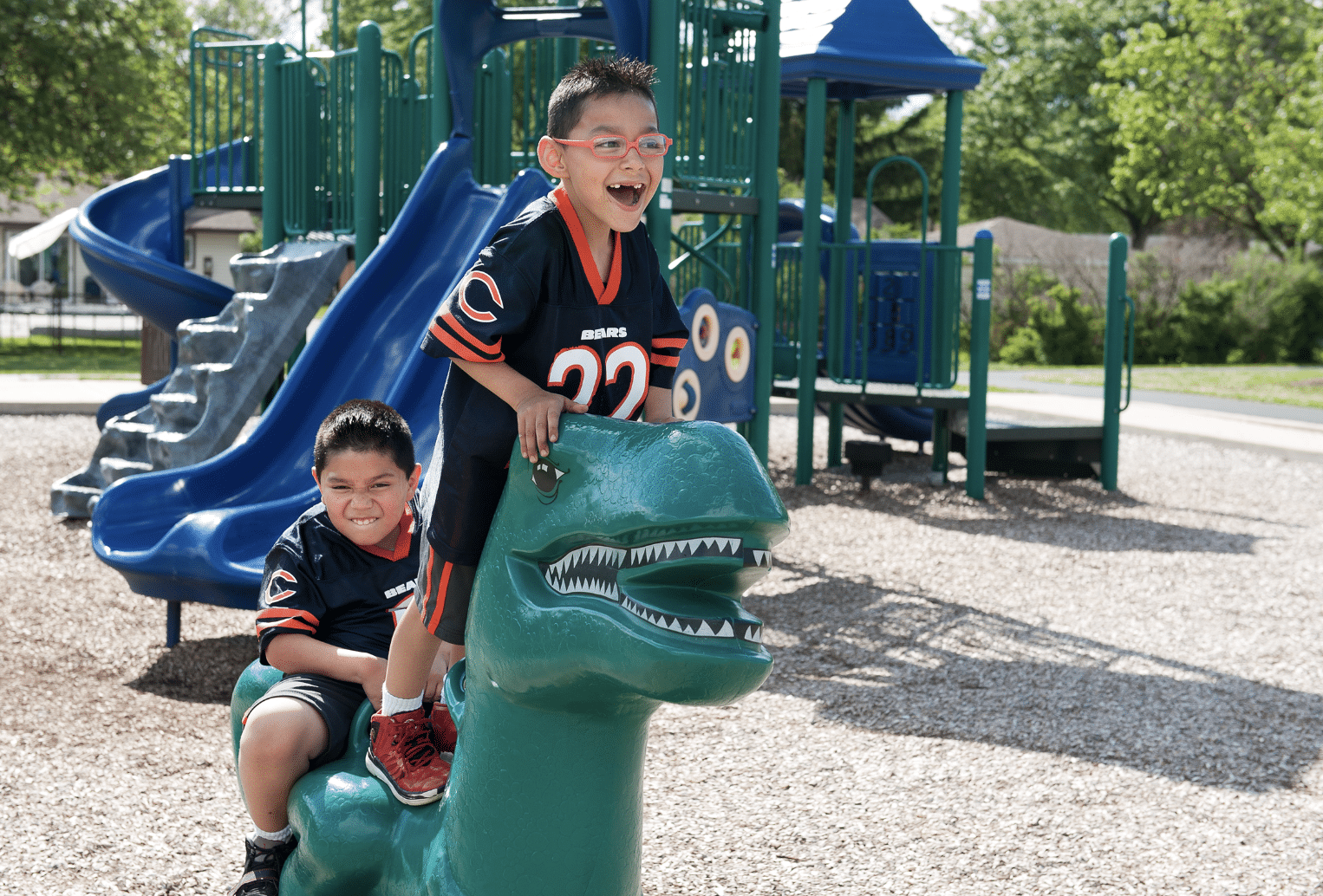Many of us have great recollections of playing on monkey bars as kids, but are monkey bars useful in ways other than entertainment? The obvious answer is yes. Monkey bars help children grow in a variety of ways. They not only give fantastic physical exercise, but they also assist kids emotionally and socially.
In this post, we’ll look at how monkey bars support occupational therapy.
Contents
What Exactly Are Monkey Bars?
Monkey bars, often known as a jungle gym, appear like horizontal ladders constructed of wood or metal bars. Children will find the structure formed by the bars to be an excellent place to play on and hang from.
Public playgrounds, like those found in parks, are the typical location for installing monkey bars. In other locations, monkey bars such as daycares, churches, businesses, and schools are helpful.
How Can Monkey Bars Support Occupational Therapy?
Kids are constantly moving, so it’s critical to find activities that allow them to expend some of their energy while improving their other skills. Children gain emotionally, socially, and physically from monkey bars. Consider the following benefits of monkey bars for children for occupational therapy:
Relieves Stress
Everyone experiences stress throughout their lives. Even children endure stress, whether connected to relationships, academics, health issues, or household concerns. Playing on monkey bars reduces stress in children since it is both enjoyable and physically demanding.
Having fun as a kid frequently entails laughing. Laughing lowers mental tension and has beneficial impacts on the body. Laughing stimulates the organs, and healthier organs indicate healthier general health. It also induces relaxation by initiating and then terminating the stress response process. It relaxes the muscles, resulting in a relaxed overall sensation. Laughter also strengthens the immune system, alleviates pain, and elevates mood.
Physical exercise relieves stress in a variety of ways. Physical exercise, for example, relieves stress by enhancing emotions, releasing endorphins, inducing a meditative state, and minimising the harmful consequences of stress.
Improves Socialisation Skills
The design of playgrounds encourages youngsters to play fairly together. Playing on the monkey bars helps youngsters acquire social skills that will benefit them as they grow into adults. It teaches kids to take their time, be patient, and cheer each other on as they cross the monkey bars. It also educates them on the benefits of kindness and motivates them to try again. Some children gravitate towards the monkey bars more than others, and they may foster new and deeper bonds.
Encourages Creativity
A playground’s distinct terrain inspires children to devise innovative activities. For instance, kids playing on the monkey bars may imagine they are in a jungle, and that crossing them would lead them to a rare treasure. Children benefit greatly from imaginative play in the following ways:
- Enhances social skills
- Enhances problem-solving abilities
- Enhances empathy towards others
- Improves linguistic skills
- Improves storytelling abilities
- Enhances self-regulation abilities
Builds Confidence
Monkey bars may help youngsters gain the confidence they will carry with them throughout their lives. How specifically can monkey bar play boost a child’s confidence? Monkey bars help to:
- Provide space for decision-making: Unstructured activities help children to discover what abilities they may have or what things they love doing. For instance, after spending a long time on the monkey bars, kids may feel more confident in discovering their interests and talents.
- Manage personal disappointment: The most significant aspect is that being unable to accomplish anything and having to try repeatedly are normal events in life. Recognising that failure may lead to achievement can help youngsters approach new tasks more optimistically. Knowing that you must practise improving is fundamental for all life skills.
- Develop connections with your peers: When some children can participate in the same activity, they find it simpler to develop bonds with their classmates. For instance, if a timid kid walks over to the monkey bars, they can enjoy chatting with the other kid as they patiently await their turn. They may also help one another get it across or talk about the shared experience.
- Improve life skills: Monkey bars help develop hand-eye coordination and cognitive performance in kids, while physical exercise may contribute to improved academic achievement.
- Encourage risk-taking safely: Taking risks in a secure environment, like when the elderly supervise kids on playgrounds, can be associated with pride. For instance, if a child is afraid of swinging across the monkey bars but is inspired by a teacher, they may feel a sense of accomplishment once they begin swinging.
Children must begin developing their confidence at a young age. Less anxiety, more drive, enhanced relationships, a stronger sense of self, and increased resilience are all advantages of confidence. Monkey bars may be an effective confidence booster for children.
Playing on monkey bars is a unique pastime that meets children’s physical exercise and well-being demands.
So start taking your children to a playground and inspire them to play, and maybe you’ll jump on the swing or slide to reminisce about some of your childhood memories!

